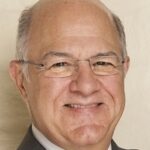It doesn’t matter how you learn. What matters is that you do more of whatever learning tactic works best for you. Clearly linked to becoming a better leader is becoming a better learner. The best leaders are the best learners.
This shouldn’t be news to anyone. It just makes sense that those people who push themselves to learn will do better than those who only dabble in it. Attending one three-day workshop, reading one best-selling book, reflecting only on one critical incident, or participating in one simulation doesn’t produce great leaders. Nor does it produce great musicians, physicians, engineers, teachers, accountants, computer scientists, or writers.
To become the best at anything, you have to learn continuously.
This leads to an extremely interesting and mostly unexplored question: Which comes first, learning or leading? Whenever we pursue this question with our clients their hunches are the same as ours. Learning comes first.
When people are predisposed to be curious and want to learn something new—as compared with those who aren’t inclined to view learning as an important part of their daily lives—they are much more likely to reflect, read, experiment with a new behavior, attend a course, get a coach, or initiate some other mode of learning.
They are also less likely to see feedback as a threat and more likely to see mistakes and failures as opportunities for growth and development.
For example, at the end of his first full year as a management consultant, former Harvard business faculty member David Maister, at the age of 39, decided to take stock, and he asked himself what assets he had as a professional consultant. This in-depth internal audit was a turning point in his career.
He had, first, his knowledge and skill, and, second, he had his client relationships.
David began to comprehend that these were interdependent. If he relied only upon what he already knew, then he would acquire clients who needed what he knew at that time. That, he surmised, was a finite number. Worse yet, his existing clients had already been served by what he already knew, so they were not likely to hire him again unless he learned more.
Then it hit him. He hadn’t learned anything new in his first year on his own, and unless he actively worked at it, his career prospects would inevitably decline.1
David’s story gives testimony to the fact that if you want to be hired—or if you want to be a leader—you have to look within yourself to improve and move on.
Conduct your own value audit:
- What do you see as your unique talents?
- What are your strengths?
- What are your weaknesses?
- What kind of feedback are you getting about how you affect others?
- What are the themes in this feedback?
- What is it telling you about yourself?
- Where are you succeeding?
- Where are you failing?
- What value are you providing that no one else can?
Your answers to questions like these will both inform and guide you about areas that you need to explore and learn more about.
Learning is the master skill.
When you fully engage in learning—when you throw yourself wholeheartedly into experimenting, reflecting, reading, or getting coaching—you’re going to experience improvement. Perhaps even greatness.
Less is not more when it comes to learning. More is more. When it comes to getting great at leading or anything for that matter, you have to keep on learning.






